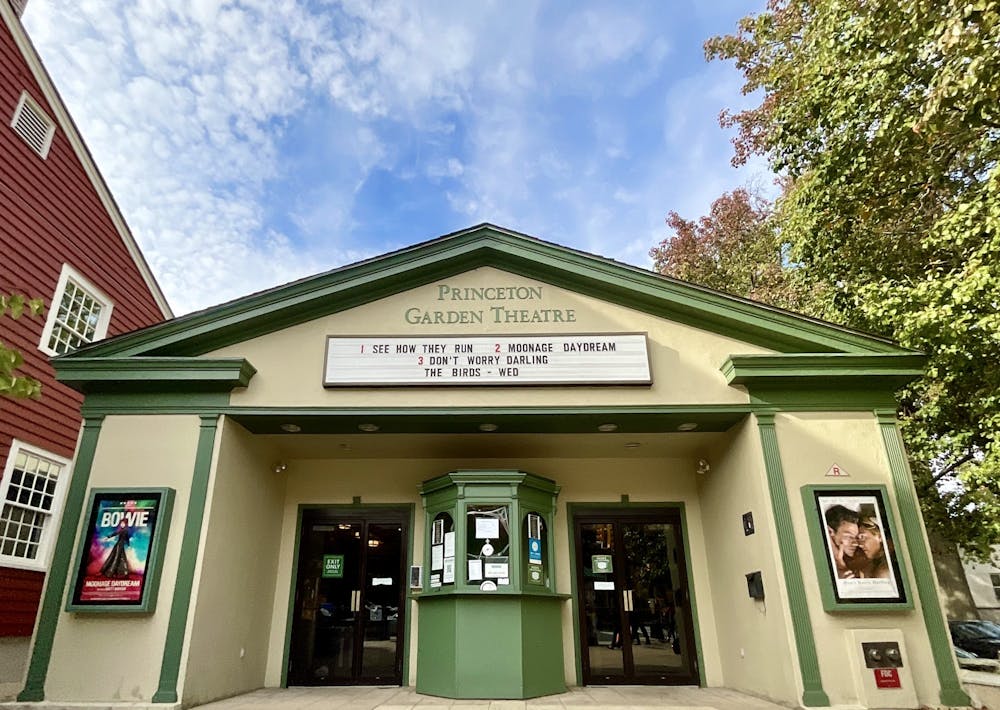Content warning: The following piece contains mention of self-harm and suicide.
It has been quite the let-down of a year for feminist psychological thrillers.
In May, writer and director Alex Garland (he’s one of the good guys, he swears) dropped “Men,” combining the deafening subtlety of Adam McKay’s “Don’t Look Up” with A24’s trademarked threadbare psychological thriller tropes and a safe, self-congratulatory script targeting a shapeless patriarchy for a truly scintillating two hours of cinematic drivel.
Nearly outdoing Garland was the duo of writer Katie Silberman and director Olivia Wilde in the latter’s sophomore directorial effort, “Don’t Worry Darling.” While the film’s Shyamalan-esque plot made a valiant effort to muffle its more egregious deficiencies, Silberman and Wilde’s incoherent integration of horror elements into the screenplay and their disappointingly shallow critiques of male chauvinism approached Garland’s own ineptitude.
The film centers on Alice, played by Florence Pugh (“Midsommar,” “Black Widow,” “Little Women”), a 1950s suburban housewife living with her husband Jack, played by Harry Styles (“Dunkirk”), in a cookie-cutter company town in the desert of the American Southwest. The graphic suicide of a local woman, Margaret (KiKi Layne), pushes Alice to investigate the goings-on at her husband’s company, a cult of personality run by the cunning and charismatic Frank (Chris Pine).
Alice eventually discovers that she and the rest of the town have been living in a simulation created in contemporary America. When the men go to work at Frank’s company, they actually wake up in the real world. Meanwhile, the women remain in the simulation 24 hours a day, seemingly placed there without their consent. Realizing what Jack has done to her, Alice kills him.
Then, Alice’s neighbor, Bunny (Olivia Wilde), barges in, discovers Jack’s body, and implores Alice to escape back to the real world while she can. Alice then drives towards a temple-like structure perched on a hill in the desert outside of town — understood to be a portal back to the real world — while chased by the company police. Whether or not she escapes is left unclear until the very last seconds of the film.
With such a compelling twist and heart-racing finale, simple competency in other aspects of the production would have made for an above-average film. Alas, this was too much to ask — a disappointing end product for a duo that released the universally-acclaimed “Booksmart” just three years ago.

For one, the screenplay was a mess. Bizarrely-timed cuts to over-stylized images designed to discuss gender discrimination and conformity were clunky, at best, and tasteless, at their worst, not to mention that the hypnotic voiceover coupled with these shots was so overwrought and pretentious I remain convinced it was parody. Coupling these shortfalls with the gratuitous, jarring shots of Margaret (Layne) aimed at provoking unease in the viewer meant the movie failed to construct the authentic feel of a psychological thriller from the start. And don’t even get me started on the incessant cuts to toast being cut, bacon sizzling, or coffee being poured. Hint: the longer the coffee is poured, the more the tension builds! Wilde’s Film 101 professor would have loved this!
Adding insult to injury was Styles’ lackluster performance. The drama surrounding the former One Direction star’s involvement in the film would have you believe he turned in a Razzie-worthy performance, but he did display at least some competency. Still, his minimal acting chops were on full display in a number of scenes, especially when he attempted to express rage or flirt with Pugh, who outclassed him in just about every meaningful department as an actor.
Perhaps the most unfortunate aspect of the film, though, was how it approached the theme of gender.
We always knew Alice was going to make the decision to attempt escape: the film tells us this much from the very beginning through both Pugh’s performance and the script. She has no arc, no moment of crisis that reveals or changes her character. Her only role is to absorb mistreatment at the hands of the film’s male characters, because the film’s only thematic goal is to show you how bad sexism is.

Now, this is not necessarily a bad direction for the movie to take, in a vacuum. But given how seriously the film takes itself, evident in its weighty drama, carefully-crafted cinematography, and sobering tone, this appears as a remarkably shallow critique. In other words, the film smacks its viewers over the head with the remarkably boring insight that male chauvinism is destructive, and then applauds itself as a complex, cerebral work for having done so.
“Don’t Worry Darling” has been compared by some to Jordan Peele’s masterpiece “Get Out,” which is understandable, given some narrative commonalities. However, beyond the plot, the resemblance dissipates. What makes Peele’s film so successful, among many aspects, is that it doesn’t just say that racism is bad and stops there. Importantly, it shows the seemingly less insidious forms that racism can take and provides Daniel Kaluuya’s character with real agency, which allows for more incisive commentary, and, for that matter, a more effective construction of tension. The parallel efforts of Wilde and Silberman come up awfully short in these departments.
In the end, maybe I’m overreacting to a movie designed to provide cheap thrills. But given how seriously the film seems to take itself, the blandness of its commentary on sexism feels almost destructive.
Wilson Conn is a co-head editor for the Sports section at the ‘Prince.’ He can be reached at wconn@princeton.edu or on Twitter at @wilson_conn.








